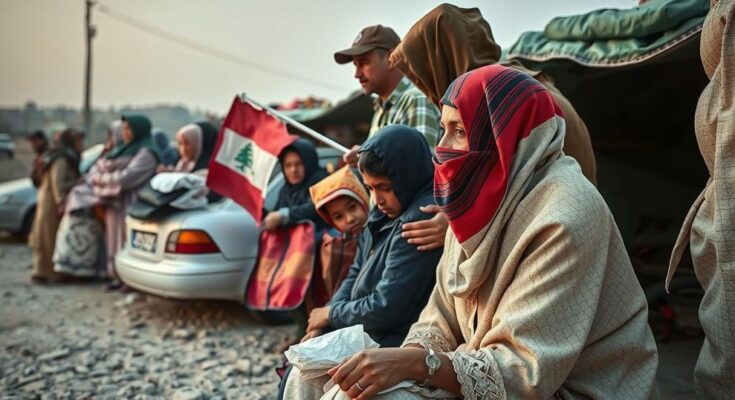The conflict in Lebanon, triggered by a Hamas-led attack on Israel, has left around 177,000 migrant workers, primarily women from Africa and Asia, stranded and vulnerable after their employers fled. Many face dire conditions due to the exploitative kafala system, with limited shelter and increased risks of violence. Community organizations are attempting to provide assistance, yet significant challenges persist, including skyrocketing evacuation costs.
The ongoing conflict in Lebanon, instigated by a Hamas-led assault on Israel, has led to tragic casualties and extensive displacement among civilians. Approximately 177,000 migrant workers, predominantly women hailing from Africa and Asia, are particularly vulnerable. Left behind by fleeing employers, these individuals are confronted with dire challenges, including isolation and lack of support. Lina, a 29-year-old housekeeper from Kenya, represents many who have been abandoned, as she is now isolated in her apartment amidst escalating military actions.
As Lebanese citizens seek refuge from the violence, the conditions for low-paid migrant laborers are drawing increasing attention. Many of these workers are ensnared in the exploitative kafala system, which ties their legal residency to their employers, often resulting in abuse and exploitation. With local shelters overwhelmed and unable to accommodate new arrivals, numerous migrant workers are left to spend nights on the streets, exposing themselves to risks of violence and harassment. Women are especially susceptible to the threats posed by hazardous living conditions and systemic discrimination.
Community organizations, such as Egna Legna, have risen to the occasion, providing critical assistance amidst the turmoil. Banchi Yimer, the organization’s founder, has reported documenting over one thousand abandoned workers within mere days, illustrating the urgency of the situation. Despite the efforts, the vast scale of the crisis presents formidable challenges, with limited resources from embassies of Ethiopia, Sri Lanka, and the Philippines offering some shelter for their nationals. Nevertheless, many migrants continue to be stranded without support.
The cost of evacuation flights has soared, now exceeding double the usual rates, thereby creating a significant financial barrier for those seeking to leave. The Kenyan government has cautioned against traveling to Lebanon due to the absence of formal labor agreements and guaranteed rights. Yet, this warning holds little comfort for those already trapped in despairing circumstances, such as Vionnah Kerubo, another Kenyan worker, whose employer adamantly refuses to release her.
The intensifying bombings deepen her sense of fear and hopelessness. This current crisis echoes the experiences endured by migrant laborers during the COVID-19 pandemic when many faced similar abandonment amid faltering economic structures. The inadequate responses from consulates have intensified the suffering of these workers, compelling them to rely on mutual assistance and solidarity as they navigate their precarious situations.
The crisis in Lebanon has escalated due to major conflicts involving Hamas and Israel, resulting in significant humanitarian concerns. The presence of approximately 177,000 migrant workers in Lebanon, most of whom are women from Africa and Asia, has become critical as they face abandonment by their employers amid the turmoil. The kafala system in Lebanon restricts these workers’ rights, making them vulnerable to exploitation and devoid of alternatives. The dire conditions for migrant workers, especially in terms of limited shelter and safety, indicate a broader need for humanitarian intervention and support services during this crisis.
The plight of migrant workers in Lebanon amid the ongoing conflict underscores severe humanitarian issues, including abandonment, exploitation, and systemic discrimination. As community organizations strive to provide emergency assistance, the lack of resources and the rising costs of evacuation complicate the situation further. The systemic flaws of the kafala system continue to trap workers in vulnerable conditions, reinforcing the urgent need for comprehensive support and a systemic overhaul to safeguard the rights and welfare of migrant laborers.
Original Source: www.mwakilishi.com




